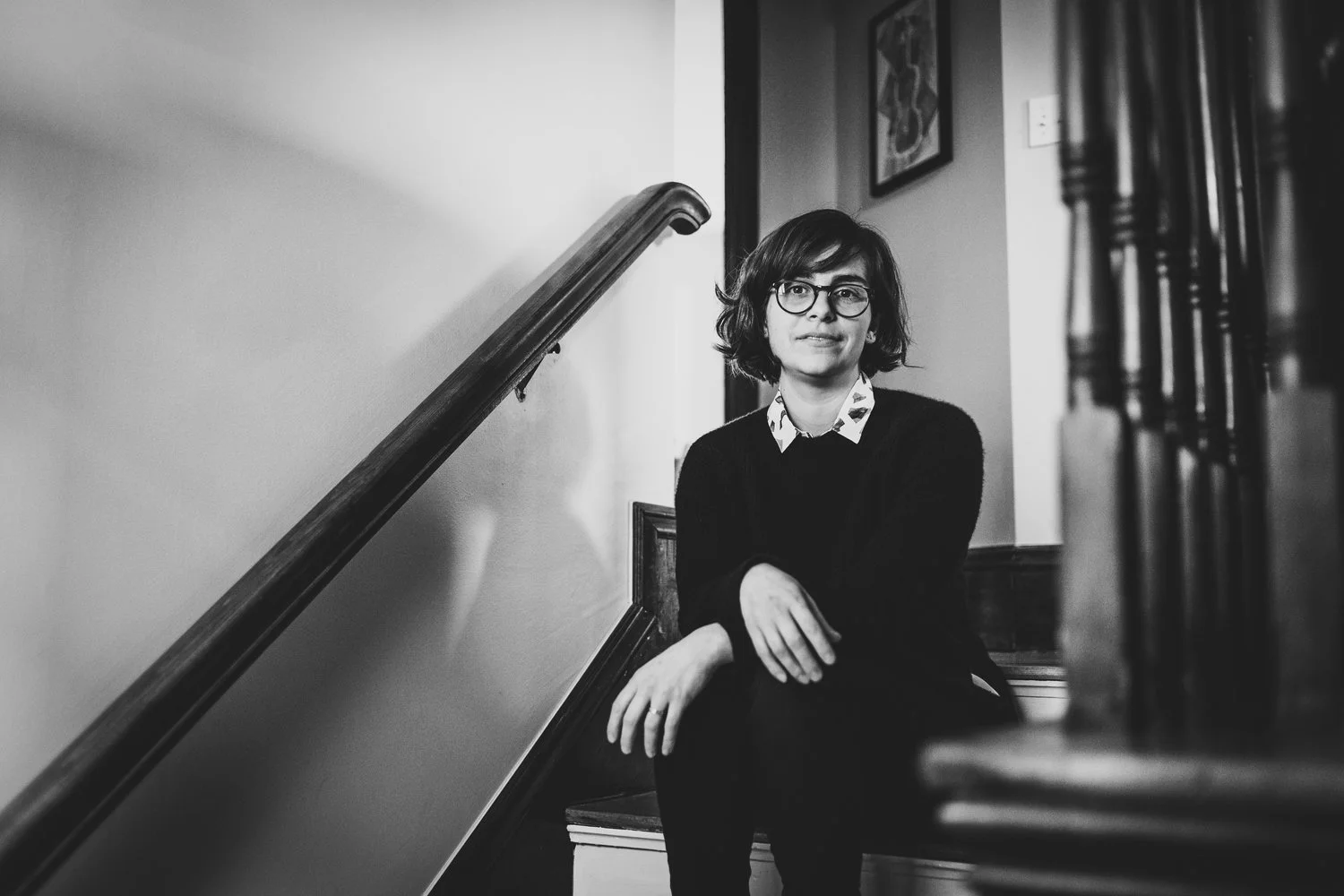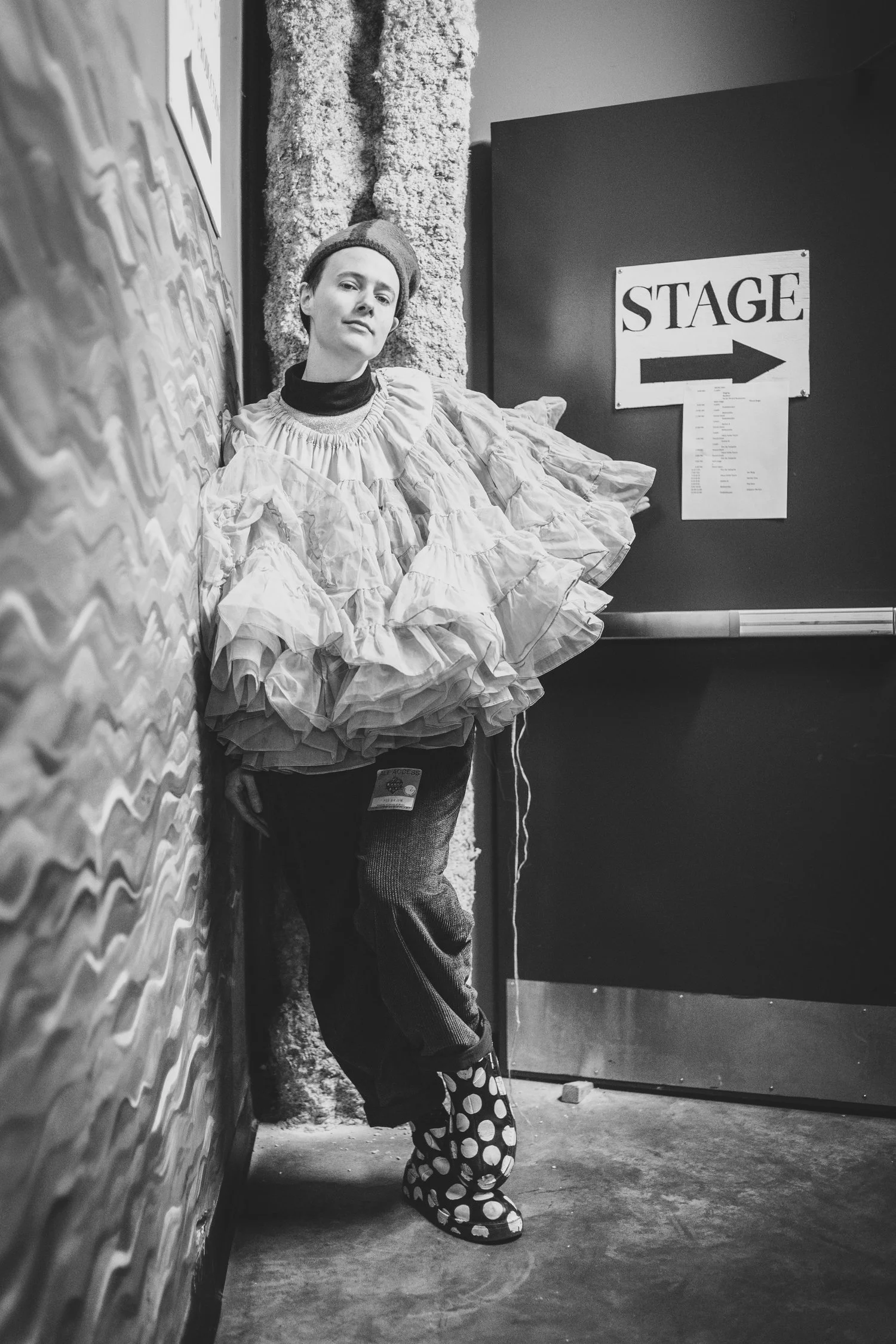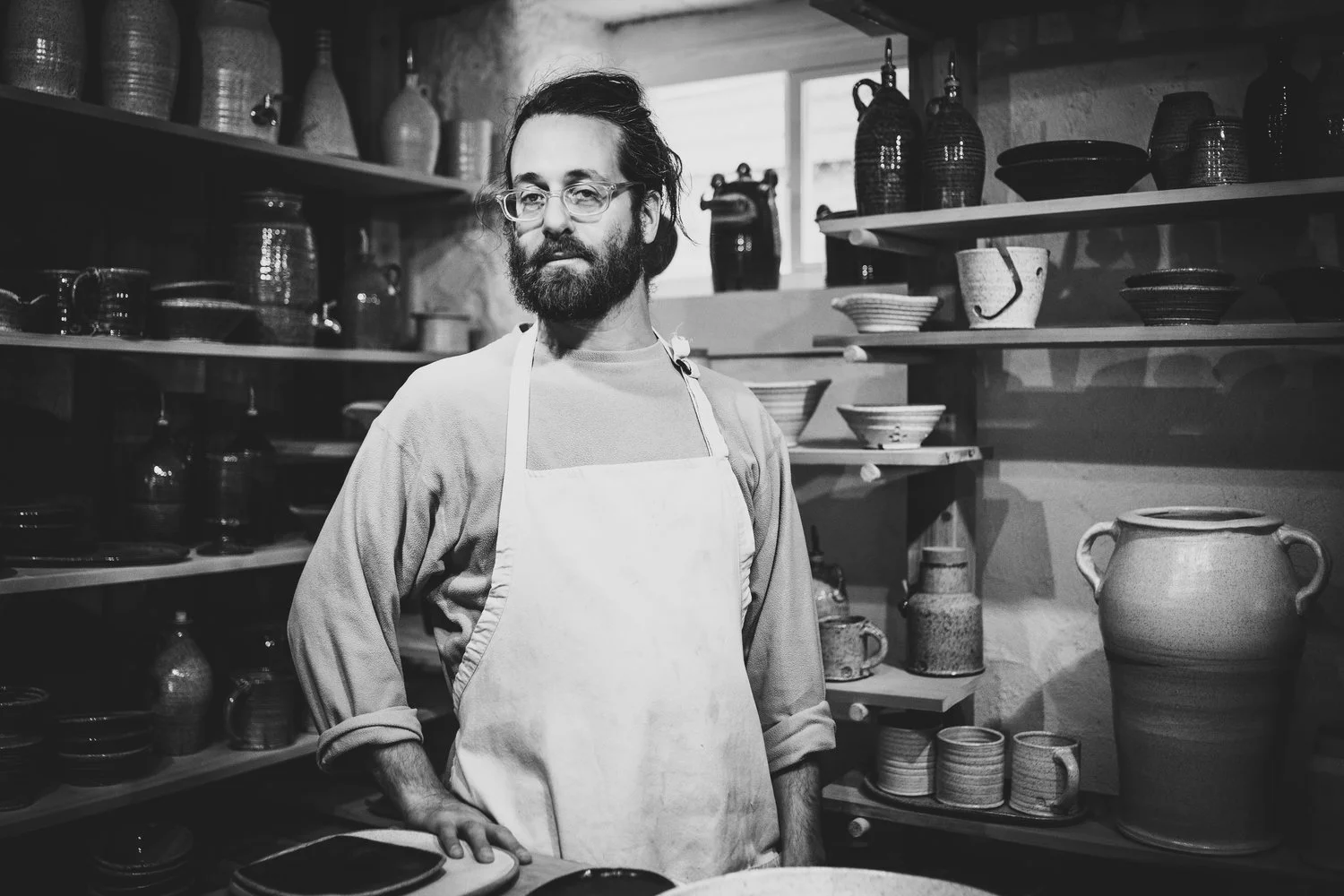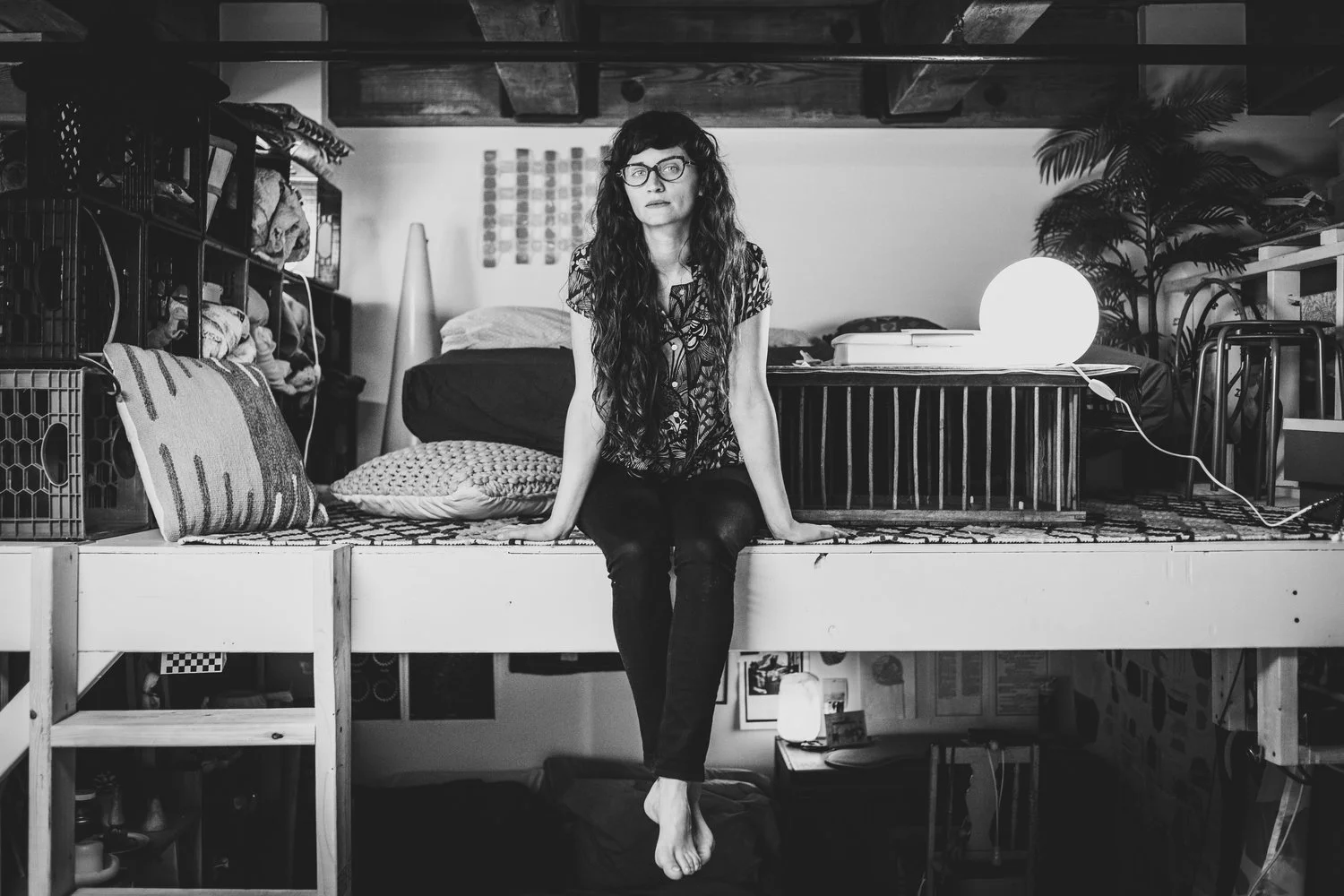Five Questions with Steve Molter
Conversations in Vulnerability
An interview project—accompanied by black and white portraits of the guests—that explores vulnerability through unfiltered conversation. Steve Molter is an American actor, musician, podcaster, photographer, and UX leader, based in Bangkok, Thailand.
Featured Conversations
“There are so many things I want to do as a person. And some of them are just dumb things. I want to watch all these shows, I have all these books I want to read. I’m a comic book lover, so I want to read comic books. There are constantly little things in the day that I want to do. I want to go hang out and have a drink and sit on the balcony of a bar. But there is work to be done. So there’s constantly a fight between being a person and being this artist that’s grinding and still trying to make it.”
“There was an essay I was reading and Mary Oliver was quoted in it. It says, ‘One day you finally knew what you had to do and began.’ And for some reason, that really hit me. So when I came back [from the silent retreat] I thought, ‘I’m done. This is it.’ But I wasn’t. Three weeks later, I went to get some professional help.”
"There were some things I missed out on in some ways. My friends left for university and I was ready to do that, but I went into making a debut album. I knew with my heart it was what I wanted to do. It felt like a calling or a deeper purpose. But that idea of journeying with friends and going to university and having this tight group going through all these experiences together, it wasn't really something I had. I made new friends but a lot of them were a lot older than me and we got into music together, but I didn't have that same sisterhood feeling of, 'Yep, we went through college together.' But in saying that, you come to different maturities at different times of your life. I have that now in a really profound way. A really strong sense of female friends and male friends that I've made and shared so much with."
"I feel like in every relationship that I’ve had that’s dissipated has gone away partly because of that. I’ve been divorced twice. For different reasons, but there are commonalities in all of them. That is something that’s fundamental in all relationships. Everybody wants to feel as if what it is that they’re thinking or what it is that they’re felling is at the very least acknowledged in a way where somebody appreciates what they’re thinking. They may not agree with it. But they can appreciate that you experience it. So yeah, of course.
Even anybody that’s had a job. Anybody that’s been in a huge metropolitan city. You walk around, you’re on the L, you’re surrounded by millions of people and you’re not connected to them in any way.
There’s a movie where this woman is working in a bookstore—it’s an Hal Hartley movie, I can’t remember the name—she’s just standing in the middle near these stairs and she keeps saying, 'Does anyone need any help? Does anyone need any help?' And of course no one even acknowledges her. It’s universal. Disconnection is built into this society. In good ways and bad ways."
"I’ve been thinking a lot about love lately. Love for me, in terms of a romantic love, is two people coming from two different worlds and coming together and making a new world that is fit for the both of them. It usually comes with a struggle, but obviously, the romanticism and the beauty that comes from the struggle and from the infatuation you have with each other is this thing. It feels like if you were alone in this world the whole time, all of a sudden it’s like this energy has been with you the whole time, and it makes you feel like any moment that you felt alone, you weren’t, and now you know you have this thing.
I’ve been really struggling in writing about love and trying to figure out how to represent it. And I think that’s what it is. You see it in movies and books and everything, and you see two people coming together and they take a part of each other and start to adapt in their own lives until they’ve created a bubble that works for the two of them."
"There’s something that terrifies most partners about having a partner who they know if they left me, I’ll be totally fine, and perhaps if I left them, they would not be totally fine. That’s an imbalance of power. I also really expect a lot from people. I expect the best from myself, but I also expect the best from other people. Which is unfair because I shouldn’t really hold people to my own personal standards, but I really can’t. I’ve tried to work on it. I was single for four years and in that time I did a lot of work on myself, but that’s one thing I just can’t get past. If I can’t have someone who’s up to my standards then I could just hang out by myself. I don’t need money, I don’t need someone to constantly be with me, I can find sex when I need that, I don’t want to have kids. So I don't really need anything from anybody else. When I have a mate I just need them to pay attention to me. But that’s pretty much it. Pay attention and be thoughtful. You never have to buy anything for me. That’s never necessary."
"One thing I realize and I love about collaboration is that you could never do it by yourself. After all the years of doing Stars of the Lid, to be able to again find someone like Dustin—because it’s only been since 2011 when we put out our first record, so it’s in infancy still. But it’s been pretty fruitful and it’s resonated with people. It’s actually been great to find a way to collaborate with someone again at this level. I find it very rewarding. I also find it very easy—every artist says they don’t have an ego, I’m sure I do—but it’s nice to realize this later in life that sometimes you have a belief, 'Oh this song needs to sound like this' but to just trust someone else and to give some of yourself to someone else, it’s kind of romantic in a way. It feels good that sometimes I might not think it was the best idea, but someone feels strongly about it you can say, 'Hey man, let’s follow your lead on this one.'"
"I’m not into the over-protective, helicopter style of parenting. We’re nervous if our three-year-old is out in front of the house unattended because of the street. But we live on a cul-de-sac. We don’t live on a busy street. We’re at the top of the neighborhood in the back, maybe cars pass by like twice an hour or something like that. Yet, we don’t want him to be out there by himself. But at the same time, we’ve taught him not to go in the street."
"I try to be as healthy as I can in every phase. I try to eat good and exercise, I do a lot of exercise. I try to pursue spiritual goals and stuff like that. I’m constantly trying to erase blindspots. Try to look at myself in the mirror. Try to get a clearer picture of who I am."
"So that allowed me to be sort of free to just enjoy the experience and be grateful that I was there and my parents were there and we could just celebrate that together as a family. Which was awesome. And it was meaningful for me and it was meaningful for them especially considering that just twelve years before I had a fifty percent chance to live and cancer and everything."
"Witnessing a child being born—your child being born is, ah, yeah it changes you forever, there’s no doubt about that. We went through it twice, we have two girls, and they’re a big part of my life and I love them, and yeah, it’s a pretty easy answer to be honest."















































































"I’m probably most proud of some of the long friendships that I’ve been able to keep in my life. And that we help each other grow. That affects my music, so it’s hard to say—if it’s only music, there are so many things that are connected to that. I’m proud to have these 25-year friendships that have been in my life, that we continue to push each other, and help each other grow."